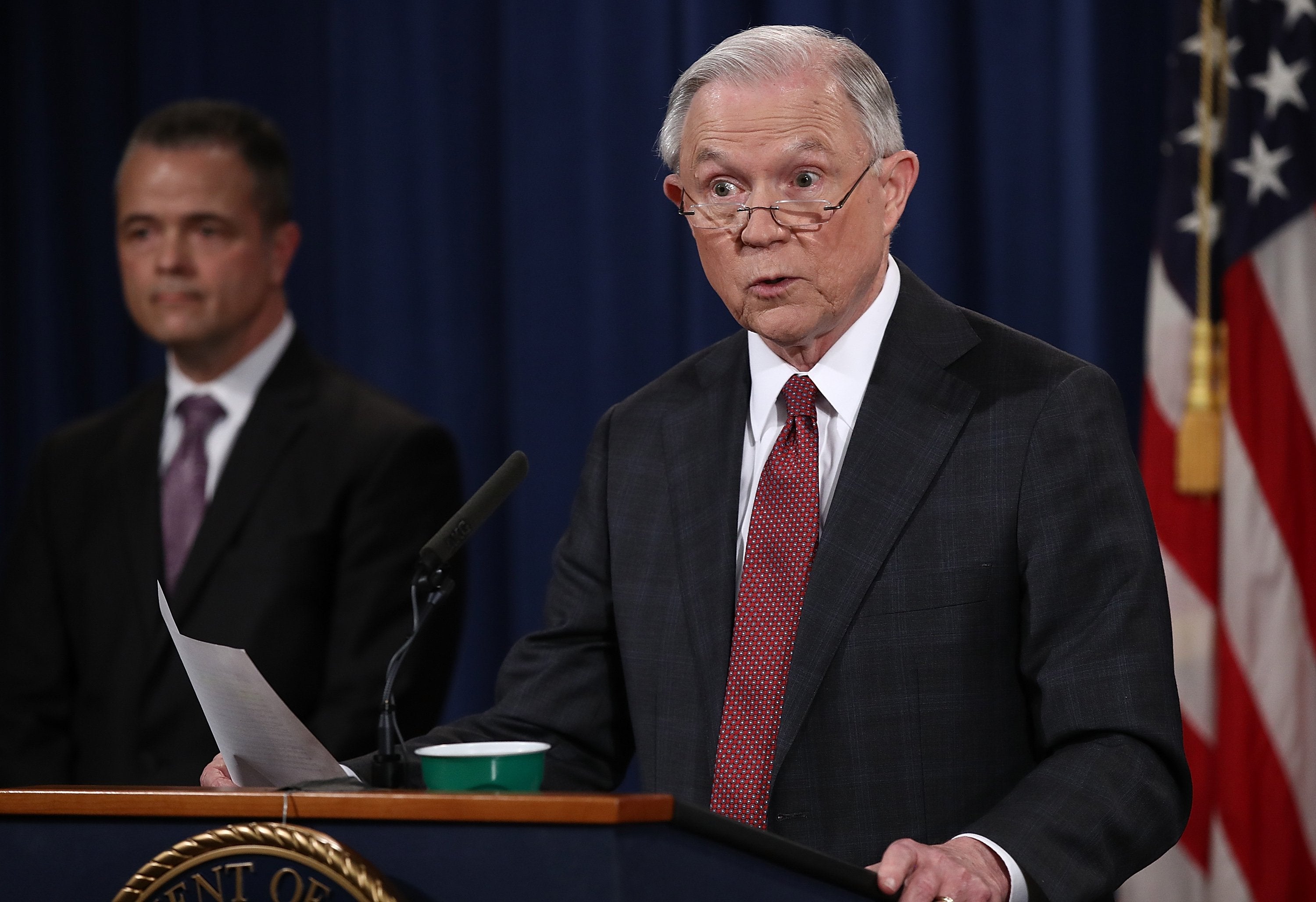
If there’s one thing we know about President Donald Trump, it’s that he means what he says.
In February when Attorney General Jeff Sessions was sworn in, Trump made a promise to protect police officers in what he believes was a climate of dissent against law enforcement— despite strong factual evidence contrary to this belief.
“A new era of justice begins,” Trump said at the time. “And it begins right now.”
“A focus on law and order and the safety and security of the American people requires a commitment to enforcing the law and developing policies that comprehensively address illegal immigration, drug trafficking and violent crime,” the executive order he signed the same day read.
Fast forward to this week and Sessions is now actively working to dissemble agreements made with problematic police forces nationwide.
Subscribe to our daily newsletter for the latest in hair, beauty, style and celebrity news.
In a memo sent March 31 Sessions noted “local control and local accountability are necessary for effective local policing” aligning with the less federal influence beliefs of the Republican party.
On Monday, as reported by The Washington Post, the attorney general doubled-down, requesting a review of consent decrees made by the Obama administration.
The Post reports, “said agreements reached previously between the department’s civil rights division and local police departments—a key legacy of the Obama administration—will be subject to review by his two top deputies, throwing into question whether all of the agreements will stay in place.”
One of these agreements was reached in Baltimore after the Freddie Gray case that left a man dead after a fatal car ride in a police cruiser. Put in place by the Obama administration, the agreement calls for changes in the local department that include training officers on how to resolve conflicts without force.
But Baltimore is only one case in the list of other troubled police departments addressed in these consent decrees that include Ferguson, Cleveland, New Orleans and Chicago.
“This is terrifying,” Jonathan Smith, executive director of the Washington Lawyers’ Committee for Civil Rights and Urban Affairs, told the Post. “This raises the question of whether, under the current attorney general, the Department of Justice is going to walk away from its obligation to ensure that law enforcement across the country is following the Constitution.”
It should be noted —once again— that concern for Sessions being sworn in as attorney general was based off a long career of racially biased rulings and offensive statements.